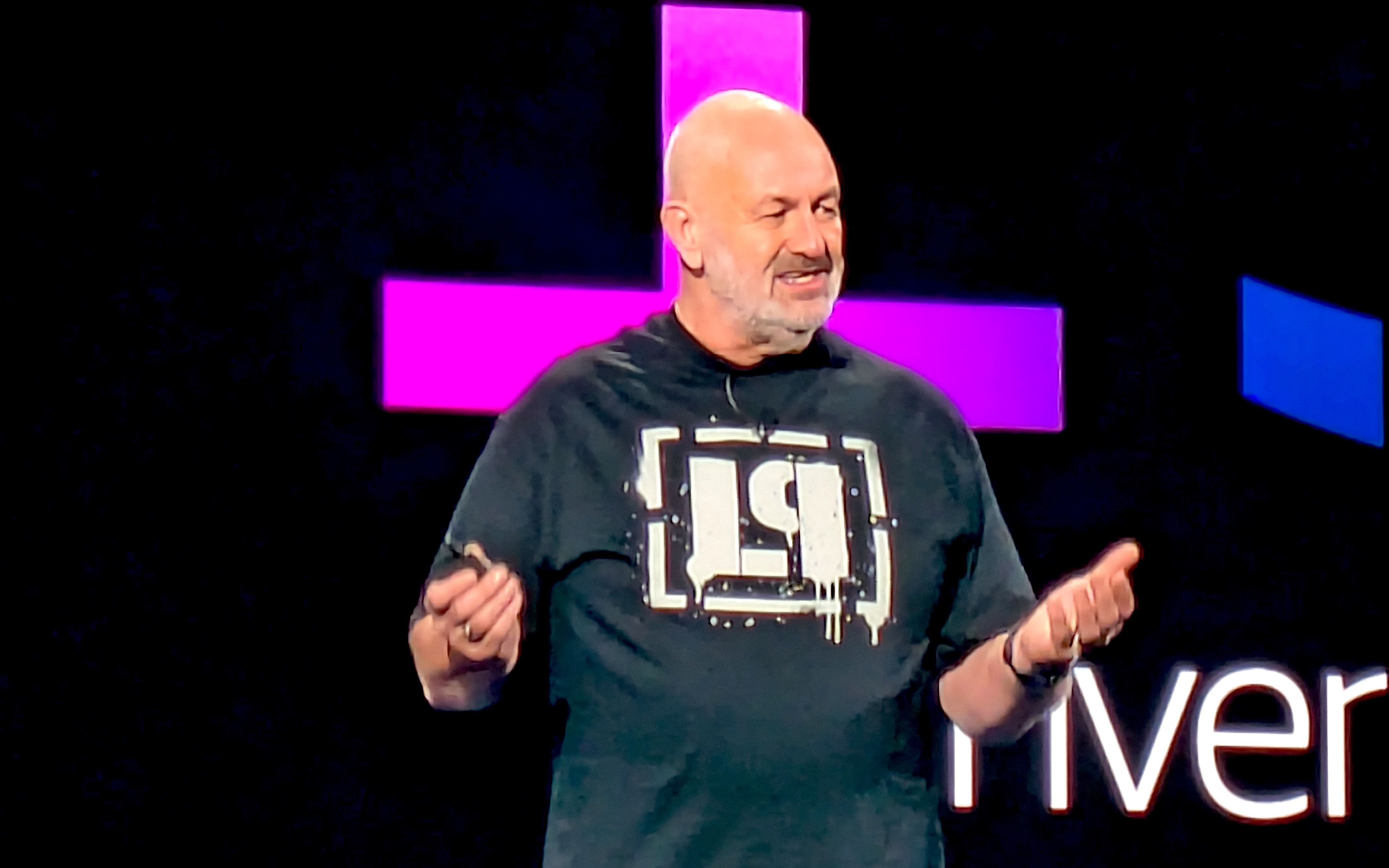 CLOUD
CLOUD
 CLOUD
CLOUD
 CLOUD
CLOUD
With 20 years of experience running one of the world’s largest distributed computer systems for online retail giant Amazon.com Inc., Chief Technology Officer Werner Vogels knows a little bit about complexity.
His message, delivered during a keynote address today, is that though complexity is inevitable in the computer world, it can also be managed to the benefit of the business.
“Complexity sneaks in all the time, you need to think about how to manage the complexity,” Vogels (pictured) said during his presentation at AWS re:Invent in Las Vegas. “Not all complexity is created equal.”
Vogels’ message around what he termed “simplexity” was framed in the context of how cloud colossus Amazon Web Services Inc. originated with its promise of “simple” services. The firm’s cloud object storage originated as S3 or “simple storage service.” Amazon SQS is based on “simple queue service,” Amazon SES is a “simple email service,” and Amazon SWF provides a “simple workflow service” for developers.
Behind the scenes, the technology driving these services is anything but simple, which led Vogels to devote much of his keynote remarks to ways in which organizations can learn from Amazon’s experience. Central to this notion of “simplexity” is an ability to understand intended versus unintended complexity in systems design, according to Vogels.
“The key is to recognize both types,” Vogels said. “If you don’t, systems quickly go from flexible to fragile.”
The principles of “simplexity” involve a focus on flexibility and an ability to evolve as systems expand within the enterprise. This means making evolvability a requirement and aligning the organization to the information technology architecture it has built.
For Amazon, this involved virtualizing complex networking features and using the AWS Nitro System, a lightweight hypervisor that allowed the company to offload virtualization functions to dedicated hardware. “You have to create an environment in which you can evolve,” Vogels said.
Key functions are organized into cells allowing Amazon to essentially break complexity into pieces, and new systems are designed to include as much predictability as possible to remove uncertainty. And there is also a decision to be made about automation and how to leverage autonomous technology to reduce complexity.
“What do we automate?” Vogels said. “That’s the wrong question. The right question is: What don’t we automate?”
Vogels also released his annual “Tech Predictions” list today, and his forecast for 2025 reflected a decidedly optimistic view of technology’s potential for good.
Vogels believes that a new wave of AI-powered tools will empower journalists and engaged citizens to combat disinformation and emphasize truth. Surging power demand and climate initiatives will drive a transformation in the energy field, according to Vogels, leading to greater innovation rather than constraints.
Amazon’s CTO foresees the workforce of tomorrow as being more driven to create positive change in the world, with less emphasis on financial success or career advancement. He also envisions that a rise in hyperlocal, community-sourced data will lead to a more proactive disaster preparedness scenario in many parts of the world, and that a consumer preference for less distraction will foster technologies that prioritize mindfulness and deep thinking over fleeting stimuli.
Vogels’ keynote at re:Invent this year reflected his focus in recent months on learning from lessons of the past. His blog posts this year include a look back at AWS Lambda and a history of the cloud provider’s block storage development. In a nod to his 20 years with Amazon, the CTO wore a t-shirt on Thursday bearing an early-2000s logo of the popular rock band Linkin Park, whose song list includes “High Voltage” and “Powerless.”
Support our mission to keep content open and free by engaging with theCUBE community. Join theCUBE’s Alumni Trust Network, where technology leaders connect, share intelligence and create opportunities.
Founded by tech visionaries John Furrier and Dave Vellante, SiliconANGLE Media has built a dynamic ecosystem of industry-leading digital media brands that reach 15+ million elite tech professionals. Our new proprietary theCUBE AI Video Cloud is breaking ground in audience interaction, leveraging theCUBEai.com neural network to help technology companies make data-driven decisions and stay at the forefront of industry conversations.